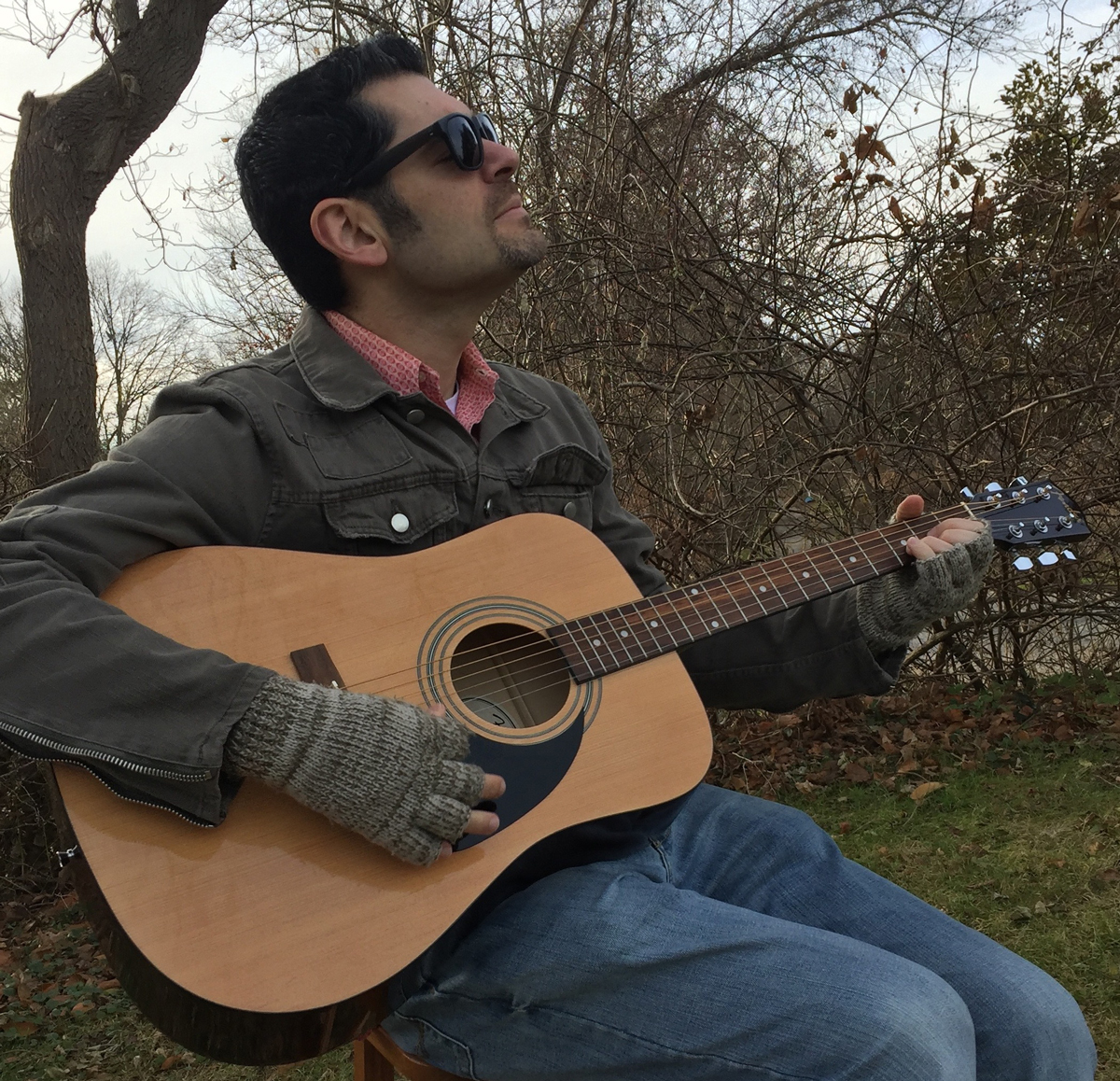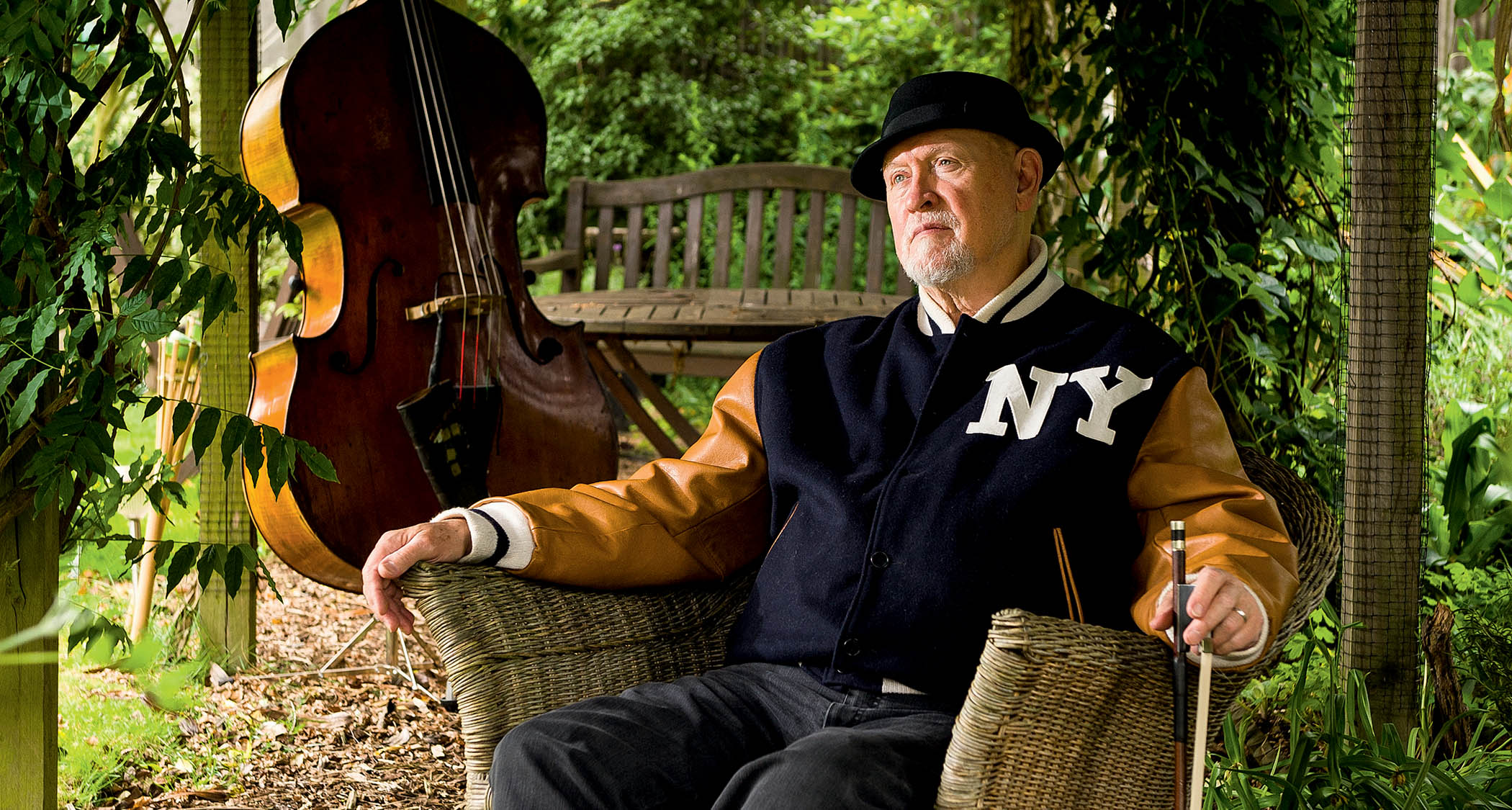Kiss's Tommy Thayer: “My legacy will be a guy who came in, worked hard, and was the glue that kept the band together”
The rock icons' longest-serving lead guitarist on their massive End of the Road Tour, what the future holds, and his recent guest appearance on Carmine Appice’s Guitar Zeus 25th Anniversary Box Set
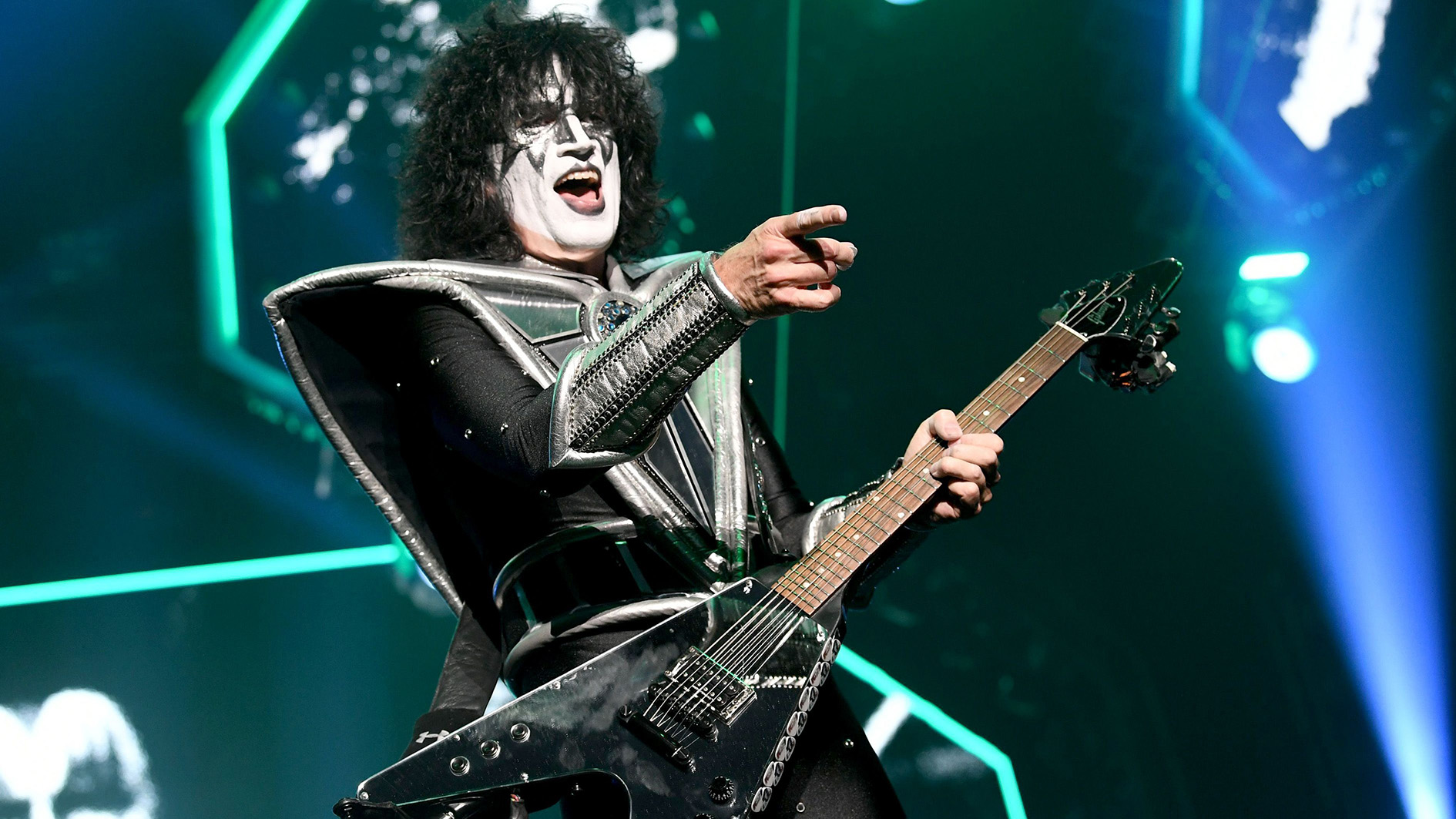
An argument could be made that without guitarist Tommy Thayer and drummer Eric Singer, not only would Kiss’s highly successful The End of the Road Tour never have happened, but fans wouldn’t have been able to see the band in concert over the past two decades.
The pair may have initially been replacements for their original counterparts, Ace Frehley and Peter Criss, but decades of touring one of the biggest rock and roll shows of all time has secured their place in music history.
In between his Kiss duties as the Spaceman, Thayer lent his six-string skills to Carmine Appice’s soaring track Mystified, which appears on the legendary drummer's Zeus 25th Anniversary Box Set.
Following the boxset's release (and in between Kiss tour legs), Thayer spoke to Guitar World to discuss his approach to the track, how his playing has developed in his time with Kiss, and what the future holds for the iconic group.
How did you get involved with the Guitar Zeus project?
“I’ve known Carmine for a long time. I’m talking back to the early ‘80s, when my band Black ‘N Blue first got to LA. It’s really interesting because Carmine would come see Black ‘N Blue play in the Troubadour, and then afterwards he’d come up and say hello to us.
“We were just blown away, thinking, ‘Why would he want to come say hi to us?’ [Laughs] The craziest thing was he was just the nicest guy. He was one of those unpretentious, unaffected guys. It left an impression on me.
All the latest guitar news, interviews, lessons, reviews, deals and more, direct to your inbox!
“So, when I heard he was doing the Guitar Zeus thing and he had a new edition that he wanted me involved in, I immediately jumped on it.”
Mystified features an extended solo at the end.
“Once Carmine sent me the track, I said, ‘I’m in Las Vegas now and I’d like to record my solo here.’ He said, ‘I know a guy who has a studio in Las Vegas and you can go over. His name is John Payne.’ So, I went over to John’s house and recorded the guitar solo.
“I basically just ran through it two or three times and that was it. I didn’t prepare anything – it was definitely off-the-cuff. A very impromptu guitar solo.”
How did you approach Mystified guitar-wise compared to your work with Kiss?
“With Kiss, it’s always different. When we were doing the Sonic Boom album, we really wanted to make a classic Kiss record – I wanted to do the kind of solos that harken back to classic Kiss eras. So, there’s a little bit more thought put into that. But with this one, it was just ‘go in there and blow it out.’”
I like to think that I continually get better! I still work on it – I still practice. I’m more comfortable now than when I first got in the band 20 years ago
What is your current guitar setup?
“I have always played Gibson Les Pauls. My main stage guitar these days is what I call my White Lightning Les Paul. It’s a beautiful metallic white Les Paul Standard, with a mirrored pickguard and a 7-ply white/black binding on it. It’s a great guitar.
“And I have a new one called an Electric Blue Les Paul, which has an iridescent blue flake finish. But it’s basically the same guitar – it’s a Les Paul Standard with kind of a ’59 profile neck on it, and Seymour Duncan JB pickups.
“I don’t really use effects. As far as amplification, I use the same amps I’ve used for the last 15 years – Hughes & Kettner Duotone amps. They’re 100-watt tube amps – real loud, arena-type amps.”
Have you made any changes to your rig for the recent Kiss tours?
“I’ve been tried and true for over 15 years. I probably have four of those Duotones with me and I run three cabinets on stage – one is underneath the drum riser and then two are offstage running in stereo. It’s a traditional guitar-into-the-amp kind of sound.”
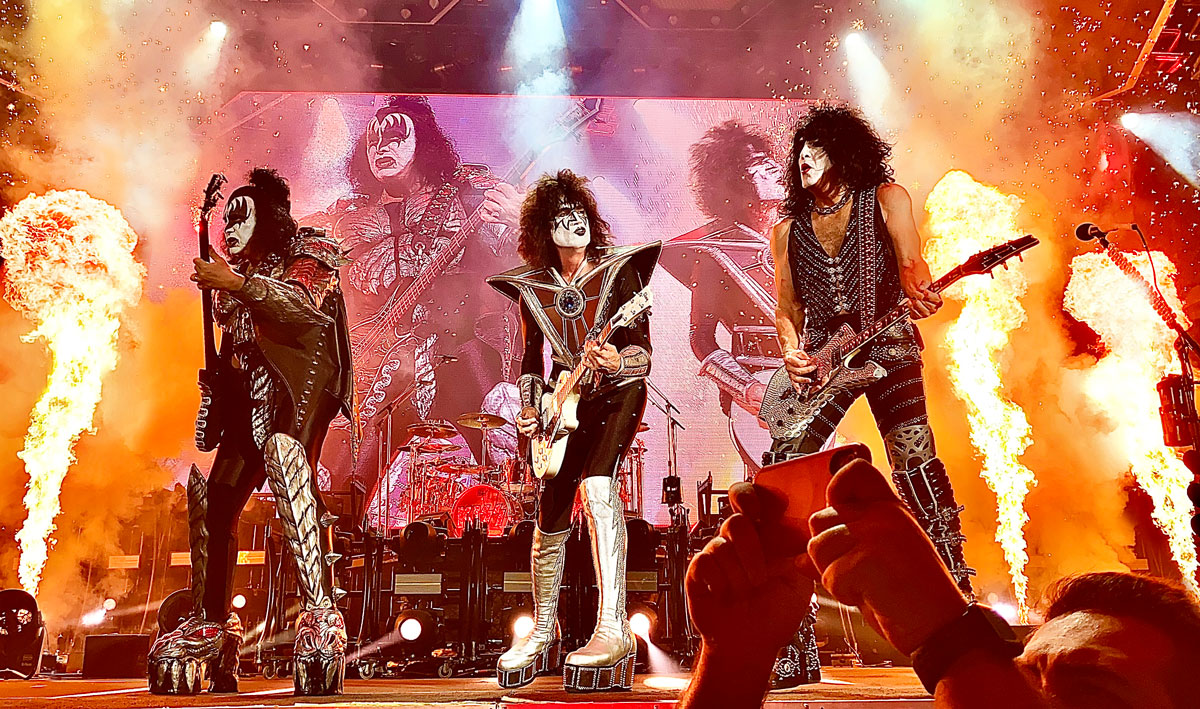
How would you compare your signature Les Pauls to a regular Les Paul?
“The Les Pauls I play on stage are made by the Gibson Custom Shop – they’re not my signature models. I’ve done four different signature guitars with Epiphone through the years.
“The first one was a Silver Sparkle Les Paul called the Spaceman, the second one was the White Lightning Les Paul, I did a White Lightning Explorer after that, and now the most recent one is the Electric Blue Les Paul.
“They’re all guitars like I said, modeled after a ’58 or a ’59 Les Paul Standard. But they’re enhanced aesthetically with the finishes that look cool and look very ‘Kiss.’ Mirror pickguards and stuff like that.”
I don’t know if many people realize this, but I’ve been the lead guitarist in Kiss longer than any other Kiss guitar player. But I will always be known as ‘the new guy’ though – no matter what happens
How has your guitar playing changed since you started playing with Kiss?
“I like to think that I continually get better. [Laughs] I still work on it – I still practice. I’m more comfortable now than when I first got in the band 20 years ago. But that’s to be expected.
“When I came in – in 2002 – I came in just as a fill-in, really. Because they didn’t know what they wanted to do after the reunion tour ran its course and things got screwy with Ace [Frehley] and Peter [Criss] again.
“And then by 2003, when we did the Kiss Symphony concert [aka Alive IV], that was really my first official gig as Kiss’s guitar player. Big shoes to fill, a lot of eyes on you, a lot of expectations.
“But I felt like I hung in there, worked hard, and like I said, over the years, I got a lot more comfortable in the role. And where the band is at today is in a really good place.”
What are your plans for after Kiss?
“I don’t have any. I’m not a ‘What are you going to be doing in five years?’ kind of guy. I’m just looking at today and focusing on that.
“We’re in the middle of The End of the Road Tour now. We’re on a break for a couple of months – we start in Australia in March, then we’re doing South America in April and May, and in June and July we’re in Europe again.
“There’s a light at the end of the tunnel – we just had a great three-month run in the US this fall. The shows were packed, and I could sense a different kind of energy coming from the fans. People were really excited to be there – because this is something they hadn’t been able to do for a year or two.”
Which Kiss songs are your favorite to perform live?
“My favorite Kiss song when I heard the first Kiss album [1974’s Kiss] was Black Diamond. I still love playing that one live.
“Ace had some fantastic, very signature solos back in the day, and I love playing those solos. Every kid grew up on that stuff, and I’m the one that gets to play it night after night, so I’m very fortunate in that regard.
“Detroit Rock City. Another fun one is God Gave Rock n’ Roll to You II – with a great Bob Ezrin-esque melodic guitar section in the middle of it.”
The reason that we’ve done so well and so consistently in the last 20 years is because of the personalities, the give and take, and the ability to keep everybody happy
Is this really the end of the band?
“You’d have to ask Gene [Simmons] and Paul [Stanley] that question. That’s the plan, and legitimately what we’re doing.
“None of us are getting any younger, particularly Gene and Paul – they’re edging into their 70s now. To do a Kiss performance, it takes a lot more than your average band to do this. Kiss is in a different category in terms of the physicality and what it takes to actually do a show.
“The idea was to do the End of the Road Tour while we’re still on top of our game. So, that’s what we’re doing – and we’ve got another year to go.
“Over the last year, I haven’t really lived a normal life, because whenever we are between legs of the tour and we’re waiting, I feel like I almost have to self-impose a quarantine on myself – because I don’t want to be the one that gets Covid, and screws it up and have to blow out dates.”
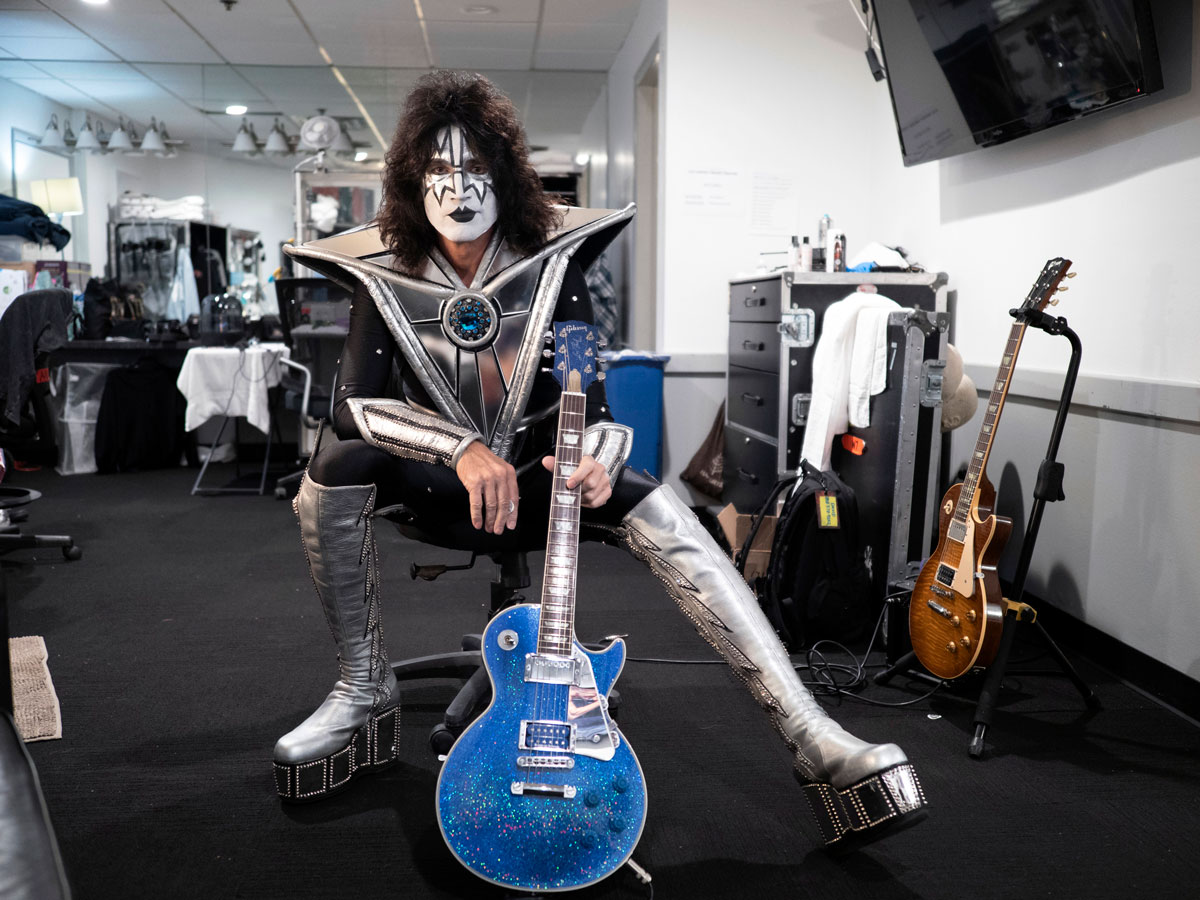
What do you think your legacy will be with Kiss?
“I don’t know if many people realize this, but I’ve been the lead guitarist in Kiss longer than any other Kiss guitar player. But I will always be known as ‘the new guy’ though – no matter what happens. I’m ‘the Ronnie Wood’ of Kiss.
“My legacy will be a guy who came in, worked hard, and was the glue that kept the band together for a long period of time. I think the kind of character and personality that I have is that of a team player and somebody who can bring people together and bind things together.
“And I think the reason that we’ve done so well and so consistently in the last 20 years is because of the personalities, the give and take, and the ability to keep everybody happy… and keep working together on a professional level.
“It works well. I’ll probably be that guy that has been in the band longer than anybody else besides Gene and Paul, that kept things together, and was the glue that made it work.”
- Carmine Appice's Guitar Zeus 25th Anniversary Box Set is out now.
Greg is a contributing writer at Guitar World. He has written for other outlets over the years, and has been lucky to interview some of his favorite all-time guitarists and bassists: Tony Iommi, Ace Frehley, Adrian Belew, Andy Summers, East Bay Ray, Billy Corgan, Alex Lifeson, Geddy Lee, Les Claypool, and Mike Watt, among others (and even took lessons from John Petrucci back in the summer of ’91!). He is the author of such books as Grunge Is Dead: The Oral History of Seattle Rock Music, Shredders: The Oral History of Speed Guitar (And More) and Touched by Magic: The Tommy Bolin Story.
